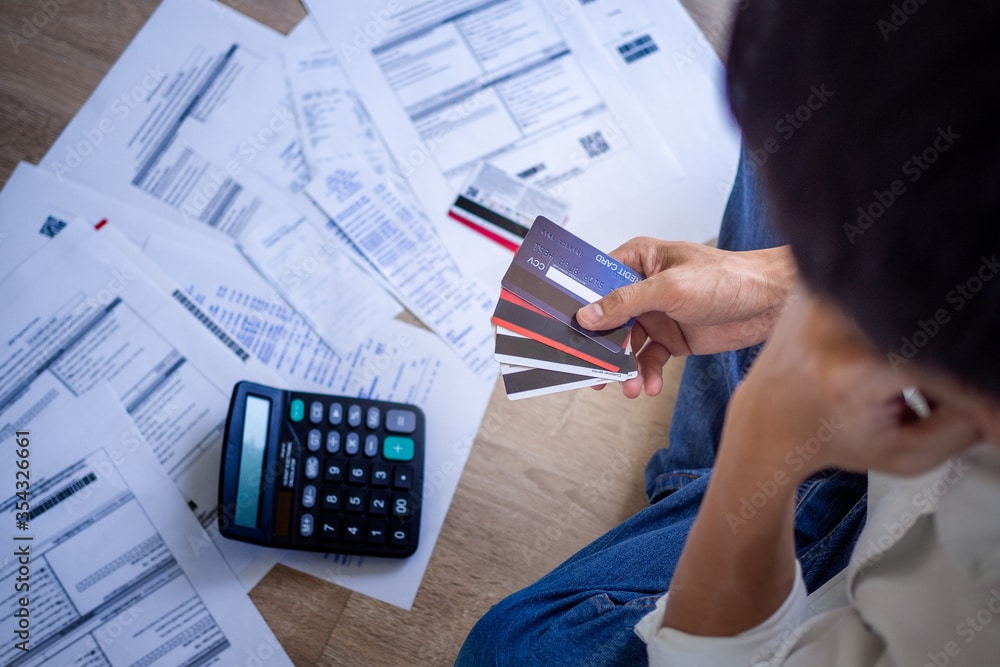The short answer is yes. In fact, credit card debt is one of the most common types of debt that people discharged in Chapter 7 bankruptcy. Even in Chapter 13 bankruptcy, credit card debt is sometimes discharged.
Credit card debt falls into the category of “unsecured debt.” Most consumer debt is unsecured. This includes debt such as:
- Credit card debt
- Medical bills
- Payday loans
- Old utility bills
- Unpaid rent
- Personal loans without collateral
While there are a few exceptions, most unsecured debt is dischargeable in Chapter 7 and may be partly or completely dischargeable in Chapter 13.
Is It a Good Idea to File Bankruptcy on Credit Card Debt?
Whether or not bankruptcy is the right answer for you depends on a number of factors, including the amount of debt you’re carrying and your income. If you’re on the fence about the right solution to your debt problems, it’s a good idea to seek advice from an experienced Michigan bankruptcy attorney as soon as possible.
Unfortunately, most people who ultimately file bankruptcy have struggled with debt for years before taking that step. That means a lot of wasted money and stress.
Credit Card Debt is Expensive
Imagine that you owe $10,000 in credit card debt at 18% interest. If you make monthly minimum payments on time and never add new charges, it would take 342 months, or 28.5 years, to pay off that debt. At the end–assuming you hadn’t incurred any late fees along the way–you would have paid more than $14,000 in interest on your $10,000 balance.
Here’s what happens when that same credit card holder struggles with debt for a couple of years before learning about their options and taking action:
If you make minimum payments on time for two years, add no new charges and incur no late fees, you will pay $5122.68 to your credit card company across those two years. At the end of that time, you will still owe $7,856.78. In other words, your $5122.68 in payments only lowered your debt by $2,143.22.
If you continue making minimum payments, you’ll be paying on that card for another 26.5 years. If you end up filing bankruptcy on that credit card debt, you’ve thrown away more than $5,000 (and probably quite a few sleepless nights).
Of course, if the interest rate is higher, you have an annual fee or other charges associated with your credit card, or you incur late fees, the cost is even higher.
Can I Still File Bankruptcy if My Credit Card Debt is in Collections?
Unsecured debt remains unsecured debt unless you give the creditor a lien on property or the creditor secures a court-ordered lien after judgment. As long as the debt remains unsecured, it doesn’t matter where in the collection process it is.
- Credit card debt held by the original creditor can generally be discharged in bankruptcy, whether it is delinquent or not
- Credit card debt that has been placed with an outside debt collector or law firm can generally be discharged in bankruptcy
- Credit card debt that has been sold to a debt buyer can typically be discharged in bankruptcy
- Credit card debt that is the subject of a pending lawsuit can typically be discharged in bankruptcy
- Credit card debt that has been reduced to judgment can typically be discharged in bankruptcy
A credit card judgment can usually be discharged in bankruptcy even if your wages are already being garnished. A court order called the automatic stay can stop wage garnishment in most bankruptcy cases. And, while the process is a little more complicated if the court has placed a lien on property, you may still be able to discharge the debt and save your property. An experienced local bankruptcy attorney can explain how bankruptcy exemptions may allow you to keep property even if there is a judicial lien on the property.
Is Chapter 7 or Chapter 13 Bankruptcy Better for Credit Card Debt?
Chapter 7 bankruptcy was designed to help people get out from under unmanageable unsecured debt like credit card debt. It’s a quicker and less expensive process and usually results in 100% discharge of credit card debt. So, most people who are filing bankruptcy because of credit card debt and other unsecured debts choose Chapter 7.
But, Chapter 7 isn’t the right answer for everyone. If you have too much income to file Chapter 7 bankruptcy in Michigan, have significant assets you want to protect, or also need to manage past-due secured debt like mortgage loans, Chapter 13 may be a better option. The best way to learn more about which type of bankruptcy would best help you regain control of your finances is to schedule a free consultation with an experienced Michigan bankruptcy attorney.
Schedule Your Free Bankruptcy Consultation Right Now
At Reinert & Reinert, debt resolution is all we do. We have the knowledge and experience necessary to help you find the right solution for your circumstances and to manage the process for you. To learn more, call 989-799-8860 or fill out the contact form on this site right now.
